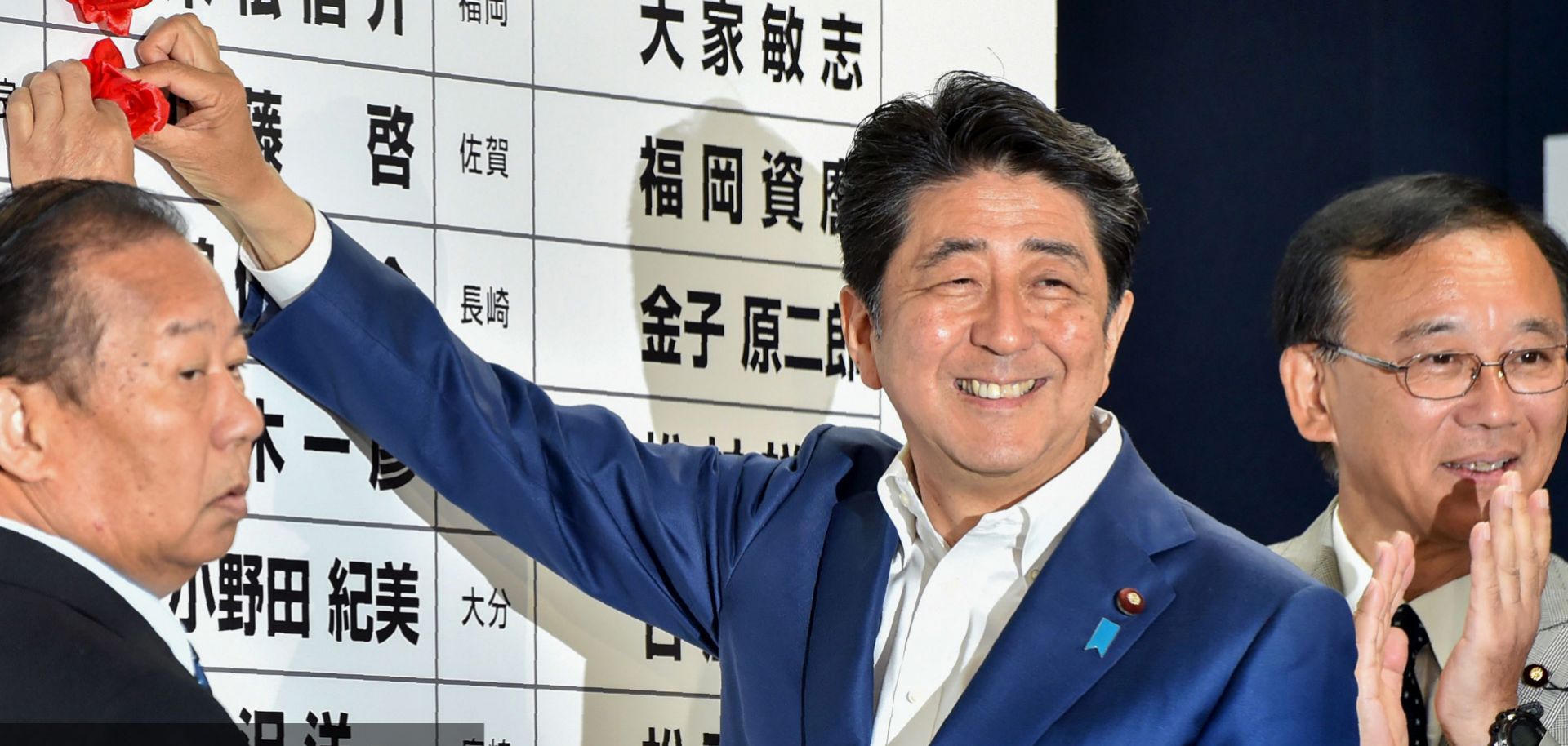ASSESSMENTS
Japan's Prime Minister and Economy Share the Same Fate
Jul 14, 2016 | 09:30 GMT

(KAZUHIRO NOGI/AFP/Getty Images)
Summary
Japan's ruling party was expected to perform well during the country's July 10 parliamentary elections, but the victory it clinched was even bigger than most predicted. Prime Minister Shinzo Abe and his coalition, led by the Liberal Democratic Party, garnered 60 percent of the popular vote as well as the support of parties outside the ruling bloc. The widespread support will give Abe the supermajority he needs to pass constitutional amendments — a highly sought-after power for an administration tasked with turning the Japanese economy around.
The vote confirms that although Abe's popularity has waned in recent years, his leadership remains unchallenged. The prime minister was re-elected in September to lead the Liberal Democratic Party after running unopposed, and fragmentation among Japan's disorganized opposition groups continues to limit their effectiveness. But as Abe's economic strategy struggles to get off the ground, his political future will become closely linked to its success. Should Abenomics continue to founder, support for the prime minister and his party may begin to waver. If it succeeds, however, it could open the door to an extension of Abe's term at the head of the ruling party and snap elections in the lower house of the National Diet.
Proceed to sign up
Register NowAlready have an account?
Sign In